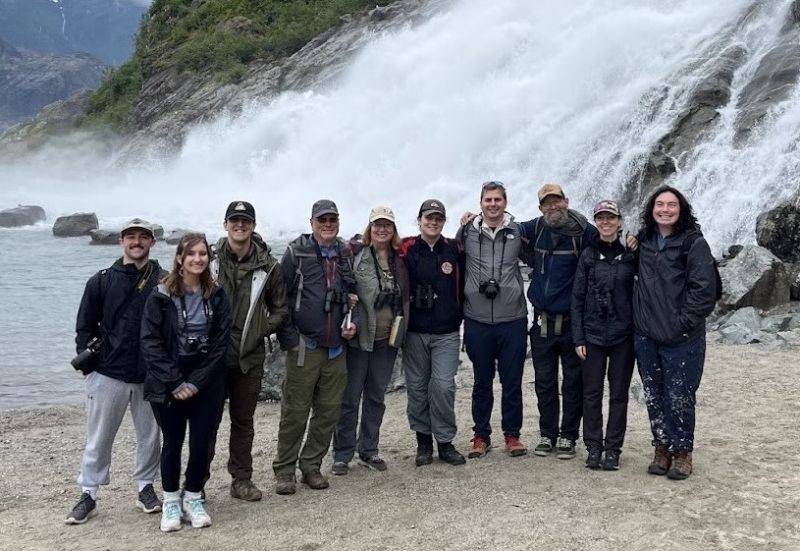Share this Story
Alum Brings Alaska Environment to Life for VWU Students
In July, students gained a hands-on environmental experience in the natural laboratory of southeast Alaska.
University News | July 15, 2025
When Scott Ramsey, ’90, graduated from Virginia Wesleyan, he never imagined that 35 years later, the Alaska Outdoor Science School he’d establish would enable current VWU students to experience the wisdom of nature.
 But thanks to Ramsey’s guidance and the VWU course “Environmental and Cultural Sustainability in Haines, Alaska,” six Virginia Wesleyan students gained a hands-on environmental experience in the natural laboratory of southeast Alaska.
But thanks to Ramsey’s guidance and the VWU course “Environmental and Cultural Sustainability in Haines, Alaska,” six Virginia Wesleyan students gained a hands-on environmental experience in the natural laboratory of southeast Alaska.
Through river rafting, tree coring, and hiking in the world’s largest remaining temperate rainforest—along with lectures and talks by geologists, biologists, and native Alaskan community leaders—students expanded their insight into the complexity of environmental issues and the interdisciplinary nature of the search for appropriate solutions.
VWU faculty members Elizabeth Malcolm, Batten Professor of Ocean and Atmosphere Sciences and Director of Sustainability, and Chris Haley, Chair of Earth and Environmental Sciences and Professor of Earth Science, led the students on their experiential learning adventure in July.
“Students are more open to new ideas and experiences during travel courses,” Dr. Malcom explained. “They have a sense of adventure and curiosity that allows them to make new connections when their perspective is changed. In Alaska, they can see firsthand how glaciers have shaped the terrain and forests, and they start asking questions about how that has affected salmon and native food sources, and how a warming climate is causing rapid changes for organisms and people.”
Ramsey’s school is known for bringing students from all over the world to experience nature. Haines, Alaska, offers students tangible, practical examples of natural phenomena that in the traditional classroom are only theoretical concepts. For example, holding ice from a melting glacier provides a completely different connection to a changing climate than reading about it in a textbook.
The Alaska course ties in to VWU’s responsibility to protect and enhance the environment and its biodiversity for the health of local and global ecosystems, future generations, and ourselves. Through the University’s Environmental Guiding Principles, VWU is committed to responsible stewardship of campus resources and to demonstrating leadership in sustainability.


